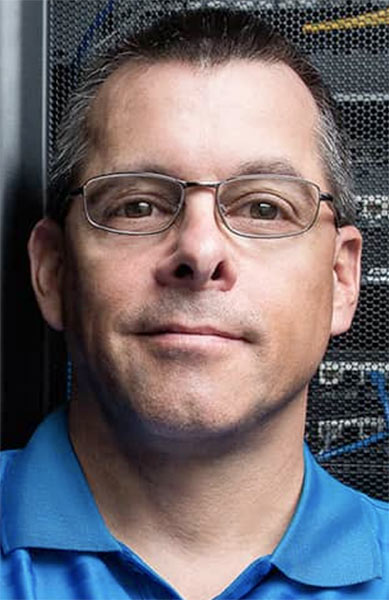

 Earlier this year, I wrote about a recent enhancement to privacy in the Domain Name System (DNS) called qname-minimization. Following the principle of minimum disclosure, this enhancement reduces the information content of a DNS query to the minimum necessary to get either an authoritative response from a name server, or a referral to another name server.
Earlier this year, I wrote about a recent enhancement to privacy in the Domain Name System (DNS) called qname-minimization. Following the principle of minimum disclosure, this enhancement reduces the information content of a DNS query to the minimum necessary to get either an authoritative response from a name server, or a referral to another name server.
 Ten years ago today, and with 300,000 domains in the zone file, we introduced DNSSEC at .se. It was the end of a fairly long journey, or at least the first stage. The first Swedish workshop to test the new function according to the specifications from the Internet Engineering Task Force was arranged in 1999. At that time, I was still working in the IT Commission's Secretariat, and the standard was far from complete as it turned out. Our ambition was to change the world, at least the world that exists on the internet.
Ten years ago today, and with 300,000 domains in the zone file, we introduced DNSSEC at .se. It was the end of a fairly long journey, or at least the first stage. The first Swedish workshop to test the new function according to the specifications from the Internet Engineering Task Force was arranged in 1999. At that time, I was still working in the IT Commission's Secretariat, and the standard was far from complete as it turned out. Our ambition was to change the world, at least the world that exists on the internet.
 Would you like to present an idea you have related to DNSSEC or DANE to a gathering of people within the DNSSEC community? Do you have an idea for a new tool or service? Have you recently implemented DNSSEC or DANE and want to share your story? The deadline is Monday, August 17, so please send your proposal soon! We are open to proposals on a wide range of topics...
Would you like to present an idea you have related to DNSSEC or DANE to a gathering of people within the DNSSEC community? Do you have an idea for a new tool or service? Have you recently implemented DNSSEC or DANE and want to share your story? The deadline is Monday, August 17, so please send your proposal soon! We are open to proposals on a wide range of topics...
 There has been a lot of criticism about the worthiness of DNSSEC. Low adoption rates and resistance and reluctance by Registrars to take on the perceived burden of signing domains and passing-on cryptographic material are at the crux of the criticism. I'm a believer in DNSSEC as a unique and worthwhile security protocol and as a new platform for innovation. It's the reason I've long advocated for and continue to work toward a new model of DNSSEC provisioning.
There has been a lot of criticism about the worthiness of DNSSEC. Low adoption rates and resistance and reluctance by Registrars to take on the perceived burden of signing domains and passing-on cryptographic material are at the crux of the criticism. I'm a believer in DNSSEC as a unique and worthwhile security protocol and as a new platform for innovation. It's the reason I've long advocated for and continue to work toward a new model of DNSSEC provisioning.
 Where has DNSSEC been successful? What are some current statistics about DNSSEC deployment? What are examples of innovations that are happening with DNSSEC and DANE? All of these questions will be discussed at the DNSSEC Workshop at ICANN 53 in Buenos Aires happening on Wednesday, June 24, 2015, from 09:00 – 15:15 Argentina time (UTC-3). You can watch and listen to the session live.
Where has DNSSEC been successful? What are some current statistics about DNSSEC deployment? What are examples of innovations that are happening with DNSSEC and DANE? All of these questions will be discussed at the DNSSEC Workshop at ICANN 53 in Buenos Aires happening on Wednesday, June 24, 2015, from 09:00 – 15:15 Argentina time (UTC-3). You can watch and listen to the session live.
DNSSEC is a mechanism where clients can verify the authenticity of the answers they receive from servers. There are two sides here. The server must supply signed answers, and the client must verify the signatures on those answers. The validation/verification side is widely implemented, but there are very few signed zones... However, if no one signs their zones, those validating resolvers don't have many signatures to check.
 For the last couple of years, the most common attack vector against the DNS system is the attack against the registrar. Either the attack is on the software itself using weaknesses in the code that could inject DNS changes into the TLD registry, or social engineering the registrar support systems and the attacker receives credentials that in turn allows the attacker to perform malicious changes in DNS. DNSSEC is the common security mechanism that protects the DNS protocol, but by using the registrar attack, any changes will result in a proper working DNS delegation.
For the last couple of years, the most common attack vector against the DNS system is the attack against the registrar. Either the attack is on the software itself using weaknesses in the code that could inject DNS changes into the TLD registry, or social engineering the registrar support systems and the attacker receives credentials that in turn allows the attacker to perform malicious changes in DNS. DNSSEC is the common security mechanism that protects the DNS protocol, but by using the registrar attack, any changes will result in a proper working DNS delegation.
 News flash: to help fight California's drought, Samsung is offering a $100,000 prize to the innovator who creates "the most effective use of IoT and ARTIK [Samsung's IoT platform] technology for reducing water consumption by individuals or municipalities." When the average reader of this news headline needs no explanation of what "IoT" means or what this contest is about, we know IoT, or the Internet of Things, is for real. There are already an estimated 25 billion connected devices around the world, according to expert estimates.
News flash: to help fight California's drought, Samsung is offering a $100,000 prize to the innovator who creates "the most effective use of IoT and ARTIK [Samsung's IoT platform] technology for reducing water consumption by individuals or municipalities." When the average reader of this news headline needs no explanation of what "IoT" means or what this contest is about, we know IoT, or the Internet of Things, is for real. There are already an estimated 25 billion connected devices around the world, according to expert estimates.
 It is not often I go out to my driveway to pick up the Washington Post -- yes, I still enjoy reading a real physical paper, perhaps a sign of age -- and the headline is NOT about how the (insert DC sports team here) lost last night but is instead is about an IT technology. That technology is the Border Gateway Protocol (BGP), a major Internet protocol that has been around for more than a quarter century, before the Internet was commercialized and before most people even knew what the Internet was.
It is not often I go out to my driveway to pick up the Washington Post -- yes, I still enjoy reading a real physical paper, perhaps a sign of age -- and the headline is NOT about how the (insert DC sports team here) lost last night but is instead is about an IT technology. That technology is the Border Gateway Protocol (BGP), a major Internet protocol that has been around for more than a quarter century, before the Internet was commercialized and before most people even knew what the Internet was.
 If you are at all interested in how the Internet's Domain Name System (DNS) works, then one of the most rewarding meetings that is dedicated to this topic is the DNS OARC workshops. I attended the spring workshop in Amsterdam in early May, and the following are my impressions from the presentations and discussion. What makes these meetings unique in the context of DNS is the way it combines operations and research, bringing together researchers, builders and maintainers of DNS software systems, and operators of DNS infrastructure services into a single room and a broad and insightful conversation.
If you are at all interested in how the Internet's Domain Name System (DNS) works, then one of the most rewarding meetings that is dedicated to this topic is the DNS OARC workshops. I attended the spring workshop in Amsterdam in early May, and the following are my impressions from the presentations and discussion. What makes these meetings unique in the context of DNS is the way it combines operations and research, bringing together researchers, builders and maintainers of DNS software systems, and operators of DNS infrastructure services into a single room and a broad and insightful conversation.